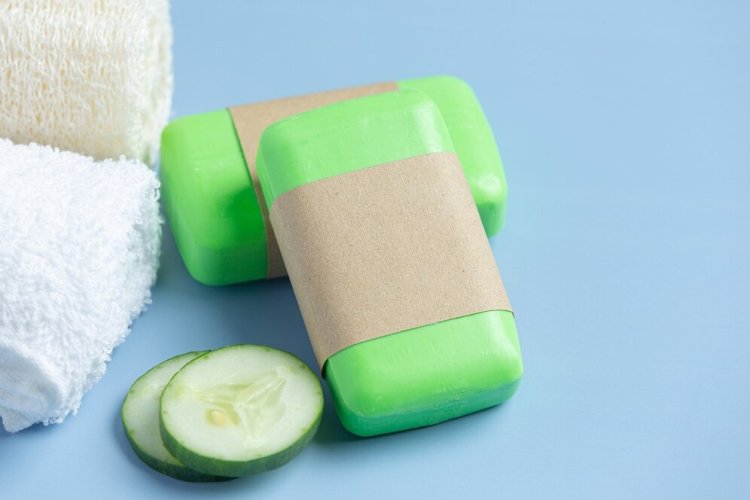Biodegradable Soap: Why It’s the Eco-Friendly Choice for Skin and the Planet
Discover how biodegradable soap supports skin health and reduces environmental harm. Learn why switching to eco-friendly cleansing benefits you and the planet.
Biodegradable Soap: Why It’s the Eco-Friendly Choice for Skin and the Planet

As environmental awareness grows, many are rethinking everyday choices—including the products they use for personal care. Biodegradable soap stands out as a solution that balances skin wellness with planetary health. Unlike conventional soaps, which often contain synthetic chemicals, biodegradable options break down naturally without harming ecosystems. This article explores why making the switch matters, focusing on skin-friendly ingredients, reduced pollution, and long-term sustainability.
What Is Biodegradable Soap?
Biodegradable soap is formulated with ingredients that decompose quickly and safely in the environment. These soaps avoid persistent synthetic chemicals, prioritizing plant-based or mineral components. Their production and disposal aim to minimize ecological disruption while maintaining effective cleansing.
Key Characteristics of Biodegradable Soap
-
Plant-Based Surfactants: Derived from coconut, corn, or palm oil, these ingredients cleanse without leaving toxic residues.
-
Absence of Phosphates and Petrochemicals: These substances, common in traditional soaps, can accumulate in waterways and harm aquatic life.
-
Non-Toxic Fragrances: Essential oils or natural extracts replace synthetic perfumes that might irritate skin or disrupt ecosystems.
How Biodegradation Works
When biodegradable soap enters the environment, microorganisms like bacteria and fungi break it down into harmless elements like water, carbon dioxide, and organic matter. This process typically occurs within weeks, unlike conventional soaps that may linger for years.
Benefits of Biodegradable Soap for Your Skin
Choosing biodegradable soap isn’t just about protecting the planet—it also supports healthier skin. Here’s how these formulas prioritize gentle care.
Gentle on Sensitive Skin
Biodegradable soaps often exclude harsh detergents like sodium lauryl sulfate (SLS) that strip natural oils. Instead, they use mild surfactants that cleanse without causing dryness or redness. For those with eczema or allergies, this reduces the risk of flare-ups.
Nourishing Natural Ingredients
Many biodegradable options incorporate moisturizing agents like shea butter, oatmeal, or aloe vera. These ingredients soothe irritation, maintain hydration, and reinforce the skin’s barrier. Unlike synthetic additives, they work in harmony with the skin’s natural biology.
Free of Irritating Additives
By avoiding artificial dyes, parabens, and sulfates, biodegradable soap minimizes exposure to potential allergens. This makes it suitable for daily use, even on delicate areas like the face or hands.
Environmental Benefits of Biodegradable Soap
The ecological advantages of biodegradable soap extend far beyond individual use. Here’s how it helps safeguard natural ecosystems.
Reducing Water Pollution
Conventional soaps often contain phosphates and triclosan, which contaminate rivers and lakes. These chemicals promote algal blooms that deplete oxygen, killing fish and other aquatic life. Biodegradable formulas eliminate such toxins, ensuring cleaner waterways.
Protecting Soil Health
When soap residues seep into soil, synthetic chemicals can disrupt microbial communities essential for plant growth. Biodegradable ingredients decompose into organic matter, enriching soil instead of harming it.
Supporting Wildlife Safety
Toxic chemicals in traditional soaps accumulate in the food chain, affecting birds, fish, and mammals. Biodegradable options break down harmlessly, reducing risks to animals that ingest or absorb pollutants.
How to Choose the Right Biodegradable Soap
Selecting a high-quality biodegradable soap involves checking labels and understanding certifications. Follow these guidelines to make an informed choice.
Look for Third-Party Certifications
Certifications like “Ecocert” or “USDA Certified Biobased” verify a product’s eco-friendly claims. These labels ensure the soap meets strict standards for biodegradability and ingredient safety.
Avoid Greenwashing Terms
Phrases like “natural” or “earth-friendly” aren’t regulated. Instead, prioritize products listing specific biodegradable ingredients, such as “coconut-derived surfactants” or “vegetable glycerin.”
Consider Packaging
Opt for soaps wrapped in recyclable or compostable materials. Bar soaps generally have a smaller environmental footprint than liquid versions packaged in plastic.
Addressing Common Misconceptions
Biodegradable Soap Doesn’t Cleanse Well
Biodegradable surfactants lift dirt and oil effectively without harsh chemicals. Ingredients like castile soap or decyl glucoside provide a thorough cleanse suitable for even oily skin.
All Biodegradable Soaps Are Expensive
While some artisanal options cost more, many affordable biodegradable soaps exist. Prioritizing multi-use bars or bulk purchases can further lower costs.
Biodegradable Means It’s Safe to Use Anywhere
Even biodegradable soap requires responsible disposal. Avoid using it directly in natural water sources like lakes or streams, as concentrated amounts can still harm ecosystems.
Conclusion
Switching to biodegradable soap is a simple yet impactful way to care for your skin and the planet. By choosing formulas free of synthetic chemicals, you reduce exposure to irritants while preventing long-term environmental damage. Whether camping, washing dishes, or showering, biodegradable options offer a guilt-free cleanse that aligns with sustainable living. Embrace this eco-friendly shift today to contribute to a healthier future—for yourself and the Earth.
What's Your Reaction?















.jpg)
.jpg)


